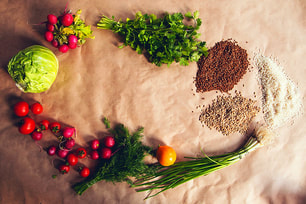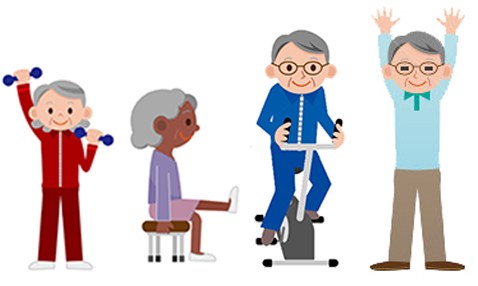|
Although it may be a time of heightened stress due to COVID-19, finding ways to stay active is key not only for physical health but psychological well-being. Here are some ideas to try!
Please make good judgement when evaluating activities and required abilities. And most importantly, enjoy! *All content found on this website, including: text, images, audio, or other formats were created for informational purposes only. The content is not intended to endorse or be a substitute for professional medical advice, diagnosis, or treatment. Always seek the advice of your physician or other qualified health provider with any questions you may have regarding a medical condition. Never disregard professional medical advice or delay in seeking it because of something you have read on this website. We disclaim any liability based on information provided in this website.
1 Comment
 As we get older, the needs of our body changes. For older adults there are key nutrients that are considered primarily important for optimal health. Keep in mind, dietary recommendations should be individualized to personal goals, disease states and functional capacity so please reach out to a registered dietitian nutritionist for more individualized recommendations. Sodium and Potassium Reducing sodium in your diet may help lower your risk of hypertension (high blood pressure) and overall risk of heart disease. Our bodies only need about 500 mg of sodium to function and we can get this from whole foods on their own. Try to select and prepare foods with little to no added salt and consider adding flavor with herbs and spices. Mrs. Dash spices are a great, no-salt added option and are available in all grocery stores. Depending on medication interactions, you may want to increase the overall potassium in your diet through fruits, vegetables and beans as this may also lower your blood pressure. Calcium and Vitamin D Older adults need more calcium and vitamin D to help maintain bone health. The general recommendation is to have at least 3 servings of calcium rich foods and beverages each day such as milk and fortified plant-based alternatives, fortified cereals, and fruit juices, dark leafy vegetables, and canned fish. It doesn't hurt to get out for a walk if possible to get some sunlight! If you take a calcium supplement or multivitamin, choose one that contains vitamin D. Vitamin B12 It is quite common for many older adults to not get enough vitamin B12. If you are vegan or vegetarian, this is more common. Examples of foods with B12 included lean meat, fish and seafood, and fortified cereals. Ask your doctor or a registered dietitian nutritionist if you should take a vitamin B12 supplement. Fiber Fiber is key to making sure you stay regular. The term "an apple a day will keep the doctor away" isn't far from the truth when it comes to fiber! Fiber has been shown to be preventive when it comes to heart disease and type II diabetes risk. Consuming foods like whole grains, beans, peas, fruits and vegetables will all provide both soluble and insoluble fiber. Fats As a general recommendation, it is advised to avoid foods that are high in saturated fats and trans fats to help with heart disease risk and disease maintenance. However, polyunsaturated and monounsaturated fats are parts of a healthy diet and these can be found in nuts, avocados, olive oil, seeds and fish. *All content found on this website, including: text, images, audio, or other formats were created for informational purposes only. The content is not intended to endorse or be a substitute for professional medical advice, diagnosis, or treatment. Always seek the advice of your physician or other qualified health provider with any questions you may have regarding a medical condition. Never disregard professional medical advice or delay in seeking it because of something you have read on this website. We disclaim any liability based on information provided in this website. |
AuthorPassionate about helping seniors maintain a healthy life ArchivesCategories |
Photos from wuestenigel (CC BY 2.0), wuestenigel


 RSS Feed
RSS Feed